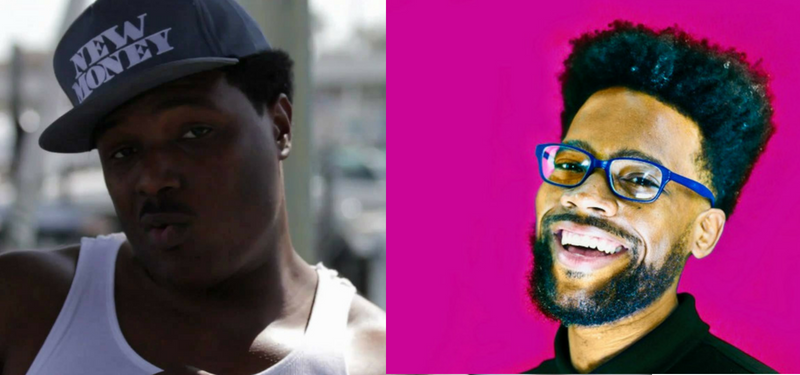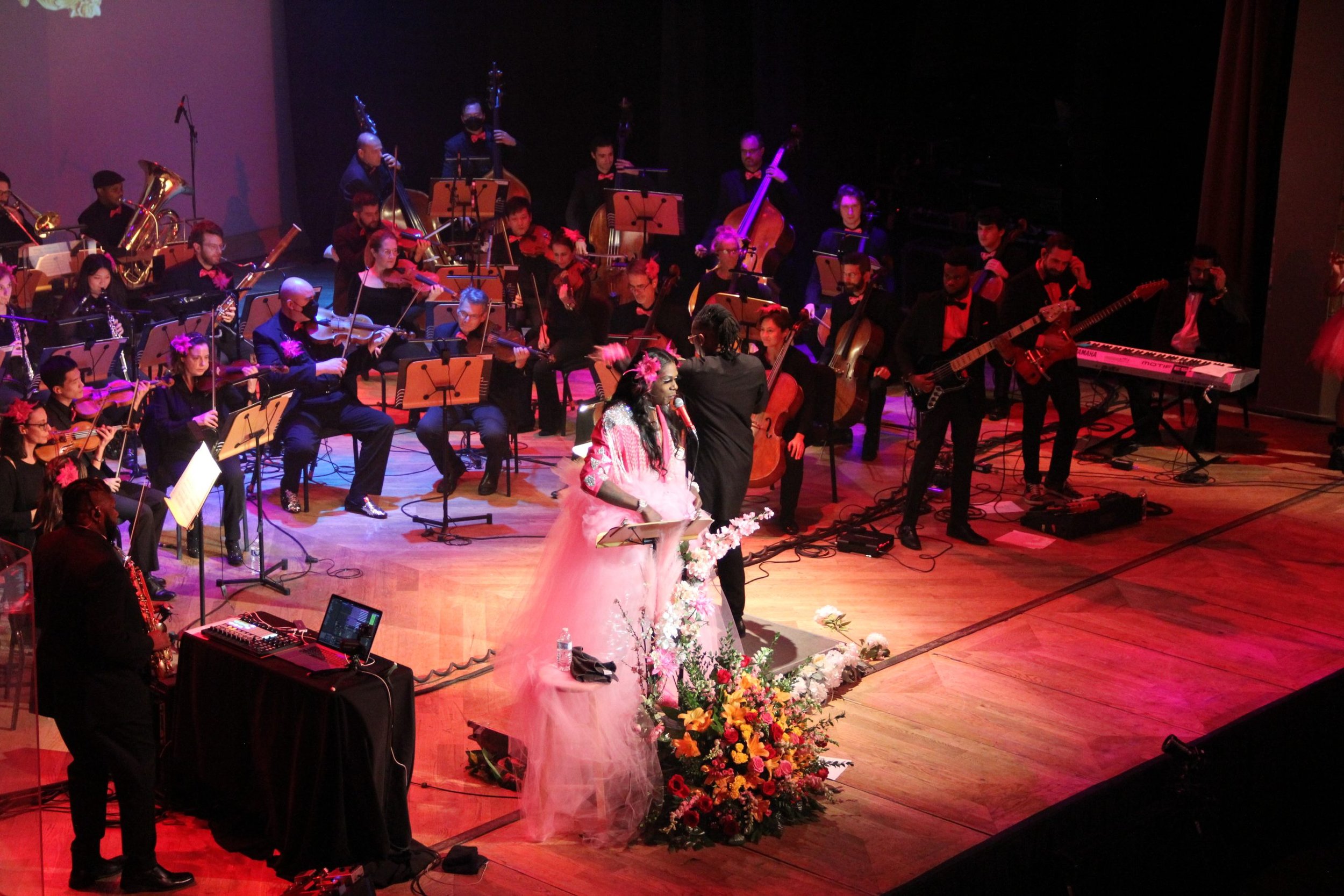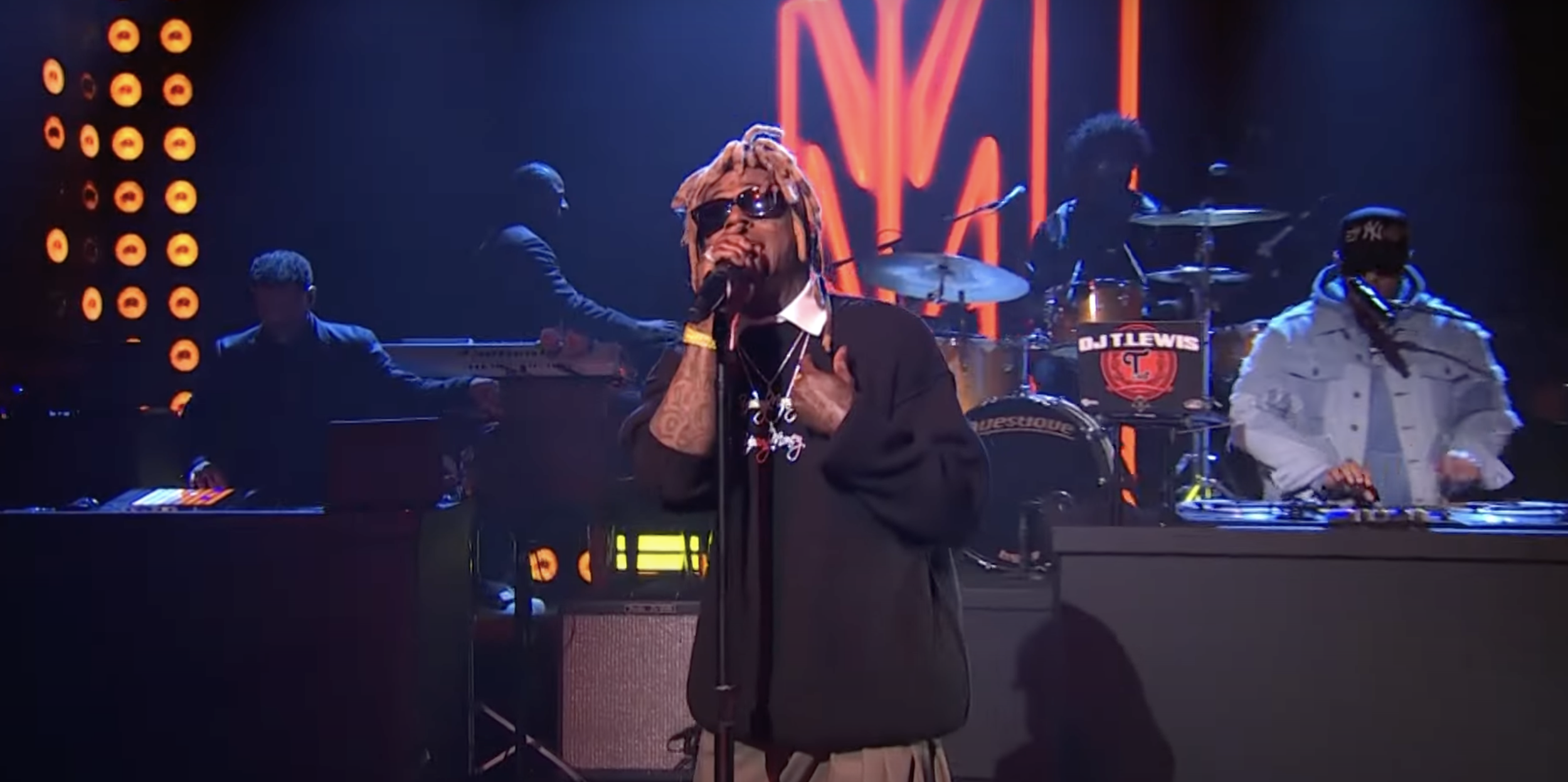Slangston Hughes on Power and Fiend

The New Orleans emcee and activist reflects on how his gigs fit together and what rapper made him think about hip-hop as a future.
This week, I interviewed rapper/activist Slangston Hughes for The New Orleans Advocate before he plays Three Keys Friday night with Detroit rapper Black Milk. Between that story and one I wrote last September to coincide with MaCCNO’s fifth anniversary party, I’ve covered his non-musical activities pretty well. Here are a few pieces of our recent conversation that seemed too valuable to lose to the cutting room floor.
- On Power
We talked about how his work with MaCCNO and his art connect since hip-hop’s macro subject matter is a critique of power.
Speaking about power is one of the tenets of the genre—who has it, who doesn’t have it, who wants it, who’s displaying it and how do they display it, whether it be through wealth or objects or people, or things like that. For me, hip-hop was all about the black and brown struggle to be acknowledged and be heard, and that at its core is power. Trying to obtain that power and hold on to it.
- On Fiend
I asked about what rapper made Renard Bridgewater think that he could become rapper Slangston Hughes. He traces that impulse back to a show that included Biz Markie and Fiend at Zephyr Field during the run-up to the game.
I remember being amazed by Fiend because I’d seen his progression over the years. I remember when he was with No Limit. I remember when he was with Big Boy Records. When that fizzled out and No Limit was no longer on top nationally or locally, he went to Ruff Riders. Ruff Riders had picked up from No Limit and Cash Money with DMX and Eve with Cassidy—he found himself on this supergroup of a label. He was able to continuously reinventing himself and stay relevant and gain money, and I saw him perform and thought it was pretty cool that he didn’t allow the waning popularity of No Limit stop his artistry or his career. For me, that opened my eyes.






